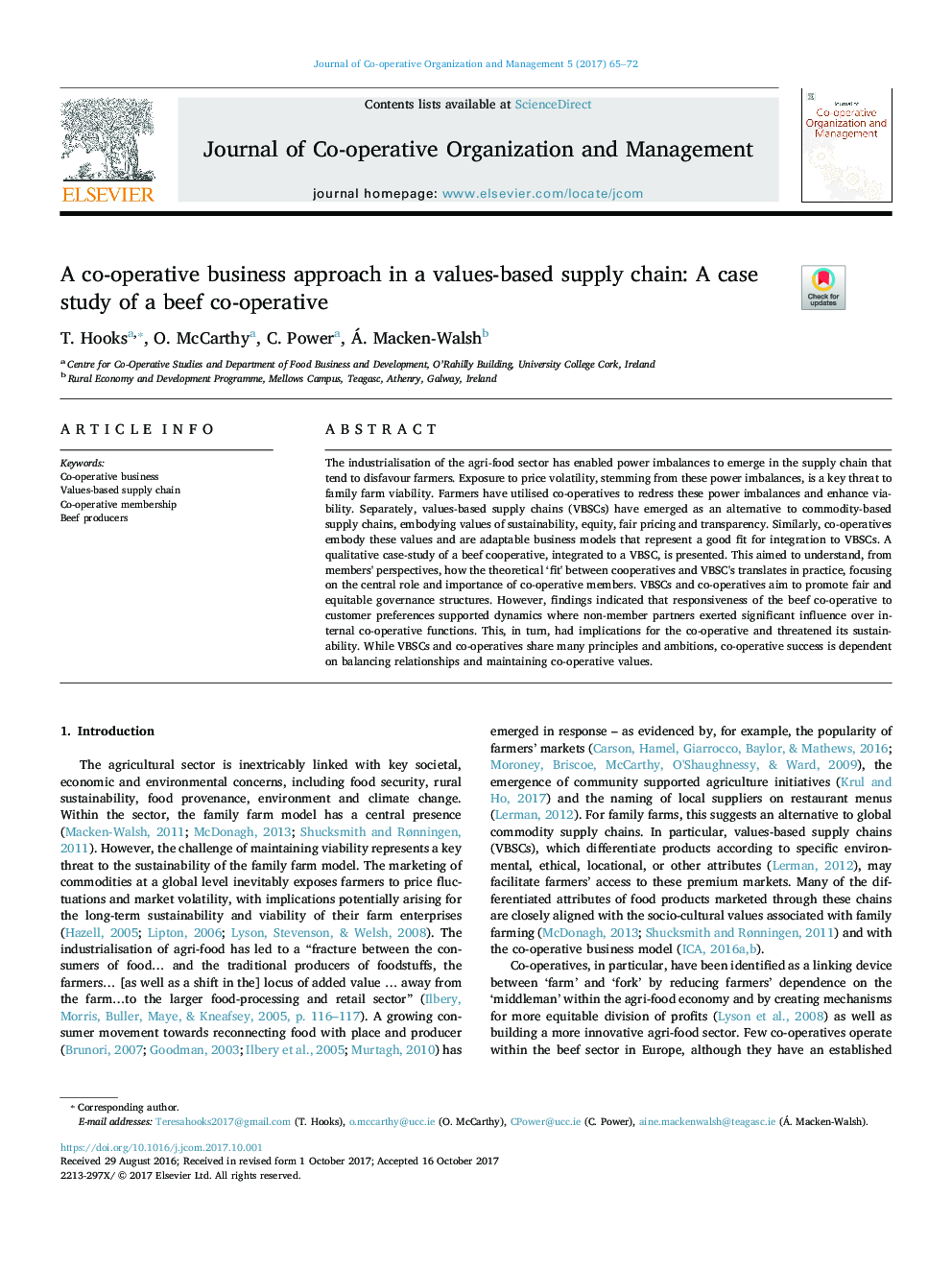| Article ID | Journal | Published Year | Pages | File Type |
|---|---|---|---|---|
| 7426162 | Journal of Co-operative Organization and Management | 2017 | 8 Pages |
Abstract
The industrialisation of the agri-food sector has enabled power imbalances to emerge in the supply chain that tend to disfavour farmers. Exposure to price volatility, stemming from these power imbalances, is a key threat to family farm viability. Farmers have utilised co-operatives to redress these power imbalances and enhance viability. Separately, values-based supply chains (VBSCs) have emerged as an alternative to commodity-based supply chains, embodying values of sustainability, equity, fair pricing and transparency. Similarly, co-operatives embody these values and are adaptable business models that represent a good fit for integration to VBSCs. A qualitative case-study of a beef cooperative, integrated to a VBSC, is presented. This aimed to understand, from members' perspectives, how the theoretical 'fit' between cooperatives and VBSC's translates in practice, focusing on the central role and importance of co-operative members. VBSCs and co-operatives aim to promote fair and equitable governance structures. However, findings indicated that responsiveness of the beef co-operative to customer preferences supported dynamics where non-member partners exerted significant influence over internal co-operative functions. This, in turn, had implications for the co-operative and threatened its sustainability. While VBSCs and co-operatives share many principles and ambitions, co-operative success is dependent on balancing relationships and maintaining co-operative values.
Related Topics
Social Sciences and Humanities
Business, Management and Accounting
Business and International Management
Authors
T. Hooks, O. McCarthy, C. Power, Á. Macken-Walsh,
